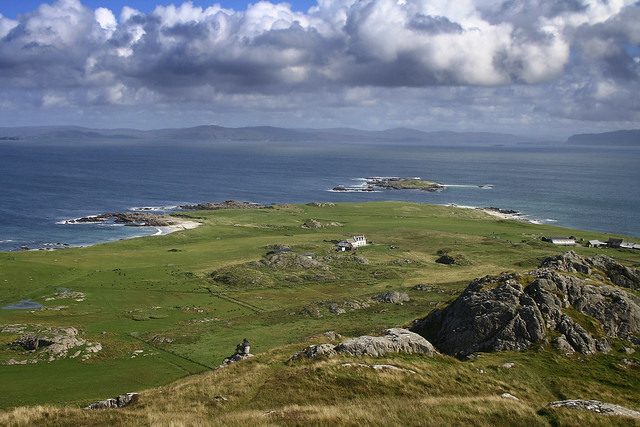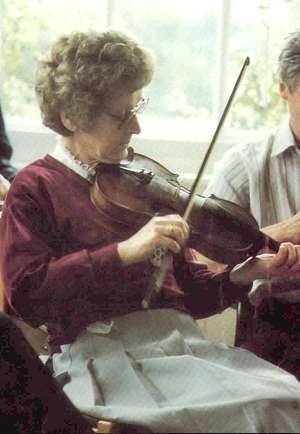
This week we consolidated the two tunes that Amble Skuse taught the class while I was away. She focused on examples that are built on the pentatonic scale, illustrating with the Shetland reel Spootiskerry and the march/ rant/ polka Salmon Tails Up the Water.
Spootiskerry is so well known that it is easy to forget that it is a modern tune, written by Ian Burns from Shetland and named after his farm. A skerry is a shoal of jaggy rocks usually found offshore protruding out of the water (from the Old Norse language and also found in Gaelic), while a spoot is a razor shell, which can be found and harvested on beaches.
The reel fits the flute and whistle very readiily and has some syncopated phrases that are quite distinctive. My version is a little different from Amble’s, and it may be one that I have developed in order to emphasise that rhythmic play. However, the version that I have recorded is Amble’s.
There is some good discussion on it at The Session, including an intriguing comment from Kenny Hadden who suggests that it fits the whistle in A as well. I haven’t tried that but it is very tempting. Kenny will be teaching again at this year’s Flute Day on 9th May.
Amble’s other tune, Salmon Tails Up The Water, I am less familiar with to play, but I have been aware of it for many years and should have known it. It is one of at least two tunes going by this title and this version is also known as The Banks of Inverness. I have seen it in Scottish collections, (but possibly the other tune with this title) and it feels to me like a march, but I see online it is claimed by Northumberian pipers as a rant, written in the 18thC by piper Jimmy Allen, who sounds like a colourful character.
There is once more some decent discussion on The Session, where it has also been associated with Irish singer and mandolinist Andy Irvine, once of the influential Planxty. It seems that the tune may be part of The Siege of Ennis set of Irish ceili tunes, probably as a polka. Good tunes tend to stick around and gain acceptance in other traditions.
We consolidated the tune and explored a couple of settings of it, one as taught by Amble, the other published by Nigel Gatherer in one of his many fine tune books. I have recorded and provided music for both of these, as well as music for Spootiskerry, on the Resources page for this year. Thanks are due to Amble for teaching these fine tunes and to Sarah and Adelheid for joining me on the recording.
Photo: Salmon Jumping by Karen Miller, some rights reserved.





